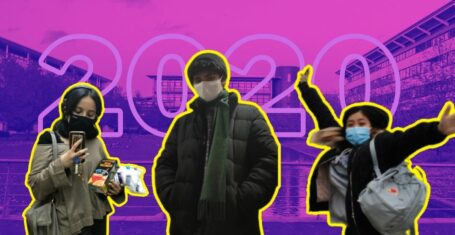
Warwick bans the term ‘trigger warnings’ due to its potential to upset students
A Tory MP has called the decision ‘ludicrous’
The University of Warwick has banned the term “trigger warnings” over concerns the phrase could potentially upset some students. A Freedom of Information request revealed the uni will now refer to them as “content notes”, due to the word “trigger” being deemed too “provocative” for those on drama and literature courses.
The uni started using trigger warnings in 2019, but has since received criticisms about the material studied by those drama and literature courses. Warwick is not the only university to make these amendments – the University of Greenwich has also implemented the same changes, following requests from students.
Trigger warnings are commonly used to alert audiences before they look at sensitive material which has the potential to be too distressing for some. This includes racism, mental illness and violence. With trigger warnings, students can be prepared in case they deem those themes to be too unpleasant or uncomfortable to delve into.
Content notes state: “Studying literature necessarily involves confronting particular ideas, words and experiences that you might find offensive, upsetting, or disturbing. All of the modules you take in the department will involve material that can be difficult for some people, even traumatic.”
Works of literature known to have content notes include George Orwell’s Nineteen Eighty-Four and H.G. Wells’ War Of The Worlds. Additionally, some of Shakespeare’s material (particularly his tragedies) are known to be filled with violence and representations of suffering.
The move has received mixed reviews from students. A second-year student studying in the uni’s English Literature and Comparative Studies department said: “I understand why content notes are there. Sometimes we work with some really heavy material (like mental illness) that might be uncomfortable to read and that’s obviously understandable. Whilst literature is all about confronting the uncensored, it’s still important to give people that choice.”
Another second year student said: “I would rather keep the term ‘trigger’, because that’s exactly what I’m being warned about – it’s important to know what will ‘trigger me’, and there’s a big difference between that and just ‘sensitive content’.”
Furthermore, Dame Margaret Drabble, the bestselling author of A Summer Bird-Cage and The Millstone said: “In principle I am against censorship and believe literature has a right to distress and alarm.”
Tory MP Andrew Bridgen also commented on the matter, accusing the uni of mollycoddling students. He said: “Warwick’s decision to take offence at the word trigger is ludicrous. How is this preparing students for a life in the outside world? Who is actually calling for these trigger or content warnings? Is it resilient young people or woke-afflicted academics?”
“It is getting out of control and harming the next generation. When I attended university, it was to be educated and prepared for the world of work. It now appears our universities are preparing their students for a world of woke.”
There has also been a backlash on Twitter to the news, with one user calling students “snowflakes”.
In response to the Freedom of Information request, a spokesman from Warwick explained how the English and Comparative Literary Studies department offers help to students who deal with “difficult and complex questions.”
They said: “The department has always had strategies in place to address these questions, although the way these strategies are flagged has changed.”









































